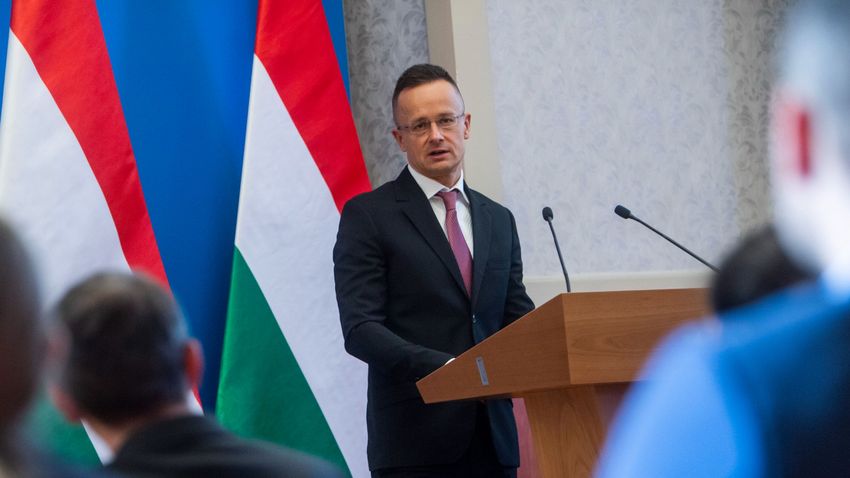Hungary will vote against proposals put forward by the European Union to impose a mandatory reduction in consumption of natural gas this winter as member states scramble to fill gas storage facilities amid a shortage of supply.
Energy ministers of the EU27 met in Brussels on Tuesday to discuss a regulation that would order member states to reduce their gas consumption by 15 percent.
All nations except Hungary are understood to have agreed on the proposal, and Hungary’s Minister of Foreign Affairs and Trade Péter Szijjártó confirmed his country will vote against plans that he claimed would seriously harm the continent’s competitiveness and put European jobs at risk by restricting energy use.
Nations such as Germany that for many years have been heavily reliant on Russian energy supplies have been caught short after endorsing an embargo on Russian oil following the country’s invasion of Ukraine. After refusing to sign off on the Nord Stream 2 gas pipeline, Russian state-owned Gazprom responded by severely limiting the flow of natural gas through Nord Stream 1 citing maintenance work.
Taking to social media on Tuesday, Szijjártó stated that plans to reduce gas consumption have only been suggested because of “the failed sanctions” imposed by Brussels on Moscow; he warned the bloc should not “make the situation worse” by forcing countries to take drastic measures that could harm industry and further weaken the economy.
“The European Union has maneuvered itself into an energy emergency in recent months,” the Hungarian foreign minister said.
While member states will begin to reduce their consumption on a voluntary basis, the regulation allows for an EU-wide alert on energy supply following a vote in the European Council, which would order countries to reduce gas consumption by 15 percent, a demand Szijjártó claimed has no legal validity.
The Hungarian news outlet Magyar Hírlap reported that at Tuesday’s crisis talks in Brussels, Szijjártó received several text messages from EU27 counterparts who agreed with Hungary’s position but felt compelled to vote in favor of the measure.
The Hungarian minister explained that, unlike some national governments, Hungary was free to dissent against the decision due to its stable political situation at home.






